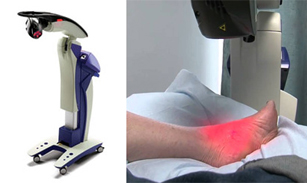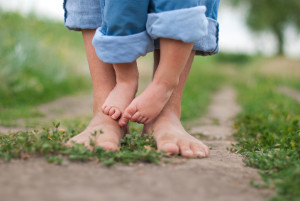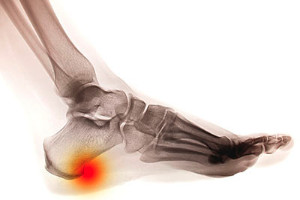October 2019
MLS Laser Therapy May Help Chronic Foot Pain
 Relief may be found from chronic foot conditions by using a technique that is referred to as MLS Laser Therapy. It is administered by emitting a certain amount of light to the affected area. Research has indicated that it may be effective in reducing pain and repairing damaged cells. It can be beneficial in treating muscles that are sore, and injuries that have occurred to the ligaments and tendons. The average treatment time can be up to ten sessions. Typically, positive results can be seen as the treatments are given. If you are experiencing chronic and debilitating foot pain, it is advised that you speak to a podiatrist who can help you in determining if MLS Laser Therapy is correct for you.
Relief may be found from chronic foot conditions by using a technique that is referred to as MLS Laser Therapy. It is administered by emitting a certain amount of light to the affected area. Research has indicated that it may be effective in reducing pain and repairing damaged cells. It can be beneficial in treating muscles that are sore, and injuries that have occurred to the ligaments and tendons. The average treatment time can be up to ten sessions. Typically, positive results can be seen as the treatments are given. If you are experiencing chronic and debilitating foot pain, it is advised that you speak to a podiatrist who can help you in determining if MLS Laser Therapy is correct for you.
MLS Laser Therapy is a successful alternative for treating any pain you may be experiencing related to certain podiatric conditions. If you are interested in MLS Laser Therapy, consult with John Horlebein, DPM from Northern Cascades Foot & Ankle, LLC. Our doctor will assess your condition and provide you with quality foot and ankle treatment.
MLS Laser Therapy
Multiwave Locked System (MLS) Laser Therapy is a patented, FDA-cleared technology that helps relieve pain and inflammation from a number of podiatric conditions, including:
- Heel Pain
- Plantar Fasciitis
- Sports Injuries
- Wounds
- Achilles Tendonitis
- Arthritis
- Neuropathy
- Neuromas
MLS Laser Therapy is an ideal alternative to surgery and prescription medication, as it has no negative side effects and encourages accelerated healing. Among its many clinical benefits, MLS Laser Therapy also:
- Reduces swelling due to bruising or inflammation
- Blocks pain
- Reduces formation of scar tissue
- Improves nerve function
If you have any questions, please feel free to contact our office located in Chelan, WA . We offer the newest diagnostic and treatment technologies for all your foot care needs.
Does Weight Gain Impact the Feet?
 Research has found that having excess body weight may cause a variety of painful foot conditions. Carrying this additional weight may change your posture and this may cause the knees to move closer together while walking. As a result of this, the weight of the body may shift to the inside of the feet. This may negatively affect the arches and tendons in the ankles and feet. Diabetes is one of the greatest risk factors associated with being overweight. This condition can cause numbness in the feet by reducing blood flow. Injuries may develop without being noticed, and cuts or wounds may heal very slowly. If left untreated, infections may occur, which can possibly lead to amputation. It is important to speak to your podiatrist about any foot or ankle pain you experience from weight gain. Your podiatrist will help you determine, along with diet and a gentle exercise routine, your best treatment options.
Research has found that having excess body weight may cause a variety of painful foot conditions. Carrying this additional weight may change your posture and this may cause the knees to move closer together while walking. As a result of this, the weight of the body may shift to the inside of the feet. This may negatively affect the arches and tendons in the ankles and feet. Diabetes is one of the greatest risk factors associated with being overweight. This condition can cause numbness in the feet by reducing blood flow. Injuries may develop without being noticed, and cuts or wounds may heal very slowly. If left untreated, infections may occur, which can possibly lead to amputation. It is important to speak to your podiatrist about any foot or ankle pain you experience from weight gain. Your podiatrist will help you determine, along with diet and a gentle exercise routine, your best treatment options.
Obesity has become very problematic at this point in time and can have extremely negative effects on the feet. If you’re an obese individual and are concerned about your feet, contact John Horlebein, DPM from Northern Cascades Foot & Ankle, LLC. Our doctor can provide the care you need to keep you pain-free and on your feet.
Obesity and Your Feet
Since your feet are what support your entire weight when standing, any additional weight can result in pain and swelling. Being overweight is one of the main contributors to foot complications.
Problems & Complications
Extra Weight – Even putting on just a few extra pounds could create serious complications for your feet. As your weight increases, your balance and body will shift, creating new stresses on your feet. This uneven weight distribution can cause pain, even while doing the simplest tasks, such as walking.
Diabetes – People who are overweight are at serious risk of developing type-2 diabetes, which has a drastic impact on the health of your feet. As you get older, your diabetes might worsen, which could lead to loss of feeling in your feet, sores, and bruises. You could also become more prone to various infections.
Plantar fasciitis – Pressure and stress that is placed on muscles, joints, and tendons can trigger plantar fasciitis, which is an inflammation of tissue that forms along the bottom of the foot.
If you have any questions please feel free to contact our office located in Chelan, WA . We offer the newest diagnostic and treatment technologies for all your foot and ankle needs.
When Do Children Begin To Walk?
 Babies feet are generally flexible when they are born. There are numerous bones, joints, and ligaments that hold the feet together, and will become stronger as walking begins. This typically happens between eight and eighteen months of age. Research has indicated it is beneficial to have your children walk barefoot while they are indoors. The overall strength of the foot may be developed as a result of the grasping action the toes will provide. When it is time to walk outside, wearing the proper footwear will help the child to balance as the feet become stronger. These shoes should consist of having soles that are flexible and flat, and it is recommended that there is adequate room for the toes to move freely in. If you notice your child’s feet are turning inward or outward, it is advised to schedule an appointment with a podiatrist who can properly assess your child’s feet.
Babies feet are generally flexible when they are born. There are numerous bones, joints, and ligaments that hold the feet together, and will become stronger as walking begins. This typically happens between eight and eighteen months of age. Research has indicated it is beneficial to have your children walk barefoot while they are indoors. The overall strength of the foot may be developed as a result of the grasping action the toes will provide. When it is time to walk outside, wearing the proper footwear will help the child to balance as the feet become stronger. These shoes should consist of having soles that are flexible and flat, and it is recommended that there is adequate room for the toes to move freely in. If you notice your child’s feet are turning inward or outward, it is advised to schedule an appointment with a podiatrist who can properly assess your child’s feet.
Making sure that your children maintain good foot health is very important as they grow. If you have any questions, contact John Horlebein, DPM of Northern Cascades Foot & Ankle, LLC. Our doctor can provide the care you need to keep you pain-free and on your feet.
Keeping Children's Feet Healthy
Having healthy feet during childhood can help prevent medical problems later in life, namely in the back and legs. As children grow, their feet require different types of care. Here are some things to consider...
Although babies do not walk yet, it is still very important to take care of their feet.
Avoid putting tight shoes or socks on his or her feet.
Allow the baby to stretch and kick his or her feet to feel comfortable.
As a toddler, kids are now on the move and begin to develop differently. At this age, toddlers are getting a feel for walking, so don’t be alarmed if your toddler is unsteady or ‘walks funny’.
As your child gets older, it is important to teach them how to take care of their feet.
Show them proper hygiene to prevent infections such as fungus.
Be watchful for any pain or injury.
Have all injuries checked by a doctor as soon as possible.
Comfortable, protective shoes should always be worn, especially at play.
If you have any questions please feel free to contact our office located in Chelan, WA . We offer the newest diagnostic and treatment technologies for all your foot and ankle needs.
The Definition of a Heel Spur
 A small and hard protrusion that forms in the heel of the foot is referred to as a heel spur. They can have different shapes that can include being flat, hooked, or pointy. It begins in the heel, and typically grows toward the arch of the foot. It generally produces pain and discomfort while walking, standing, or running. Some patients experience swelling, and the heel may feel achy for the majority of the day. As the aging process occurs, the heel pads may become thinner, and may fail to provide adequate shock absorption. Calcium deposits may gradually develop, the deposits form bony protrusions, which are heel spurs. Patients who are overweight or walk on hard surfaces could be prone to developing this type of foot condition, in addition to wearing shoes that do not fit correctly. Relief may be felt when the foot is elevated, and it is beneficial to wear shoes that have additional cushioning. If you have developed a heel spur, it is advised that you consult with a podiatrist who can properly treat this condition.
A small and hard protrusion that forms in the heel of the foot is referred to as a heel spur. They can have different shapes that can include being flat, hooked, or pointy. It begins in the heel, and typically grows toward the arch of the foot. It generally produces pain and discomfort while walking, standing, or running. Some patients experience swelling, and the heel may feel achy for the majority of the day. As the aging process occurs, the heel pads may become thinner, and may fail to provide adequate shock absorption. Calcium deposits may gradually develop, the deposits form bony protrusions, which are heel spurs. Patients who are overweight or walk on hard surfaces could be prone to developing this type of foot condition, in addition to wearing shoes that do not fit correctly. Relief may be felt when the foot is elevated, and it is beneficial to wear shoes that have additional cushioning. If you have developed a heel spur, it is advised that you consult with a podiatrist who can properly treat this condition.
Heel spurs can be incredibly painful and sometimes may make you unable to participate in physical activities. To get medical care for your heel spurs, contact John Horlebein, DPM from Northern Cascades Foot & Ankle, LLC. Our doctor will do everything possible to treat your condition.
Heels Spurs
Heel spurs are formed by calcium deposits on the back of the foot where the heel is. This can also be caused by small fragments of bone breaking off one section of the foot, attaching onto the back of the foot. Heel spurs can also be bone growth on the back of the foot and may grow in the direction of the arch of the foot.
Older individuals usually suffer from heel spurs and pain sometimes intensifies with age. One of the main condition's spurs are related to is plantar fasciitis.
Pain
The pain associated with spurs is often because of weight placed on the feet. When someone is walking, their entire weight is concentrated on the feet. Bone spurs then have the tendency to affect other bones and tissues around the foot. As the pain continues, the feet will become tender and sensitive over time.
Treatments
There are many ways to treat heel spurs. If one is suffering from heel spurs in conjunction with pain, there are several methods for healing. Medication, surgery, and herbal care are some options.
If you have any questions feel free to contact our office located in Chelan, WA . We offer the latest in diagnostic and treatment technology to meet your needs.
It's Time for Beautiful Feet
Where Do Plantar Warts Grow?
 A plantar wart typically grows into the skin on the bottom of the foot. This is a result of pressure that is endured by standing and walking for majority of the day. They are caused by the HPV virus and can appear on the heel or on the sole of the foot under the toes. This type of virus is considered to be contagious, and it is beneficial to wear appropriate shoes while in specific environments. These can include public swimming pools, shower room floors, locker rooms, and surrounding areas. Plantar warts can cause severe pain and discomfort, and it is often difficult to walk. If you are afflicted with a plantar wart, it is advised that you speak with a podiatrist.
A plantar wart typically grows into the skin on the bottom of the foot. This is a result of pressure that is endured by standing and walking for majority of the day. They are caused by the HPV virus and can appear on the heel or on the sole of the foot under the toes. This type of virus is considered to be contagious, and it is beneficial to wear appropriate shoes while in specific environments. These can include public swimming pools, shower room floors, locker rooms, and surrounding areas. Plantar warts can cause severe pain and discomfort, and it is often difficult to walk. If you are afflicted with a plantar wart, it is advised that you speak with a podiatrist.
Plantar warts can be very uncomfortable. If you need your feet checked, contact John Horlebein, DPM from Northern Cascades Foot & Ankle, LLC. Our doctor will assist you with all of your foot and ankle needs.
About Plantar Warts
Plantar warts are the result of HPV, or human papillomavirus, getting into open wounds on the feet. They are mostly found on the heels or balls of the feet.
While plantar warts are generally harmless, those experiencing excessive pain or those suffering from diabetes or a compromised immune system require immediate medical care. Plantar warts are easily diagnosed, usually through scraping off a bit of rough skin or by getting a biopsy.
Symptoms
- Lesions on the bottom of your feet, usually rough and grainy
- Hard or thick callused spots
- Wart seeds, which are small clotted blood vessels that look like little black spots
- Pain, discomfort, or tenderness of your feet when walking or standing
Treatment
- Freezing
- Electric tool removal
- Laser Treatment
- Topical Creams (prescription only)
- Over-the-counter medications
To help prevent developing plantar warts, avoid walking barefoot over abrasive surfaces that can cause cuts or wounds for HPV to get into. Avoiding direct contact with other warts, as well as not picking or rubbing existing warts, can help prevent the further spread of plantar warts. However, if you think you have developed plantar warts, speak to your podiatrist. He or she can diagnose the warts on your feet and recommend the appropriate treatment options.
If you have any questions please feel free to contact our office located in Chelan, WA . We offer the newest diagnostic and treatment technologies for all your foot and ankle needs.
Read more about What Are Plantar Warts?






